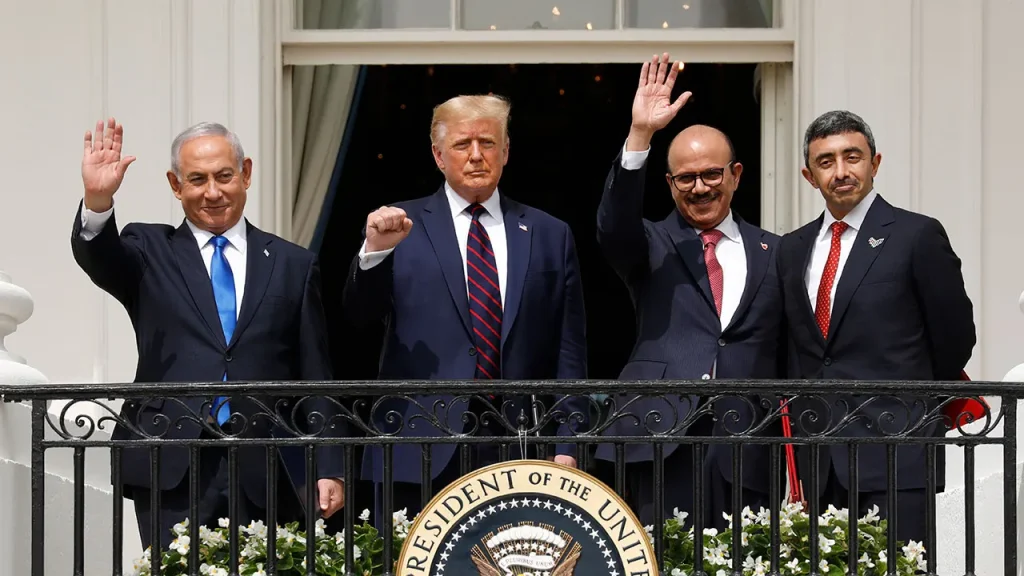Kazakhstan Set to Join Abraham Accords: A New Chapter in Middle East Diplomacy
Kazakhstan is on the verge of becoming the newest member of the Abraham Accords, marking a significant expansion of the peace agreement that has been reshaping Middle Eastern diplomatic relations since 2020. U.S. Special Envoy to the Middle East Steve Witkoff revealed this development during the America Business Forum in Miami, stating he would return to Washington D.C. to formally announce the addition of another country to the historic accord. This upcoming announcement represents a meaningful evolution of the agreement originally brokered by the Trump administration, which has already fostered formal diplomatic ties between Israel and three Arab nations: the United Arab Emirates, Bahrain, and Morocco.
The Abraham Accords have emerged as a groundbreaking diplomatic framework that has begun normalizing relations between Israel and several Arab states, breaking decades of regional isolation. When first signed in 2020, the accords were heralded as a significant shift in Middle Eastern geopolitics, creating formal relationships where previously there had been limited or no official diplomatic contact. Sudan had initially signed a declaration of intent to join in January 2021, but internal political turmoil has prevented the completion of that process. Kazakhstan’s imminent addition suggests the accords’ influence is expanding beyond the immediate Middle East region into Central Asia, potentially creating broader networks of cooperation across a vast geographical area.
One U.S. official characterized Kazakhstan’s anticipated membership as an important demonstration that “the Abraham Accords is a club that many countries want to be a member of.” This official further suggested that the announcement would help “turn the page on the war in Gaza and move forward toward more peace and cooperation in the region.” The timing is particularly significant as it comes amid ongoing conflicts in the Middle East, offering a counterbalancing diplomatic achievement during a period of regional instability. Kazakhstan’s President Kassym-Jomart Tokayev is expected to make the announcement during an upcoming meeting with President Donald Trump, underscoring the personal diplomacy that has characterized many of these agreements.
The expansion of the Abraham Accords comes at a time when former President Trump has signaled that additional nations might soon join the normalization framework. Notably, both Syria and Saudi Arabia appear to be at the forefront of efforts to broaden the historic Israel-Arab normalization pact. The potential inclusion of Saudi Arabia would be particularly momentous given the kingdom’s regional influence and historical position regarding Israel. Syria’s potential participation would also mark a dramatic shift in regional alignments, especially considering its historically antagonistic stance toward Israel and complex relationships with various regional powers.
These diplomatic developments are occurring alongside a busy schedule of high-level meetings in Washington. Syria’s interim President Ahmed al-Sharaa is expected to meet with Trump at the White House in the coming week, followed closely by a visit from Saudi Arabia’s Crown Prince Mohammed bin-Salman on November 18. These meetings suggest an accelerated timeline for potentially expanding the Abraham Accords further, with significant implications for regional security architecture and economic cooperation. The sequence of these diplomatic engagements indicates a coordinated effort to build momentum behind the peace initiative.
The addition of Kazakhstan to the Abraham Accords would demonstrate the agreement’s potential to transcend the traditional boundaries of Middle Eastern diplomacy and extend into Central Asia. As a predominantly Muslim nation with significant economic interests and a tradition of multi-vector diplomacy, Kazakhstan’s participation could encourage other countries in the region to consider similar steps. The expanding circle of nations normalizing relations with Israel represents a significant shift from decades of diplomatic isolation and suggests a pragmatic recalibration of priorities across multiple regions. If successful, this expanding framework of peace agreements could create new opportunities for economic integration, security cooperation, and people-to-people connections across previously divided societies.


